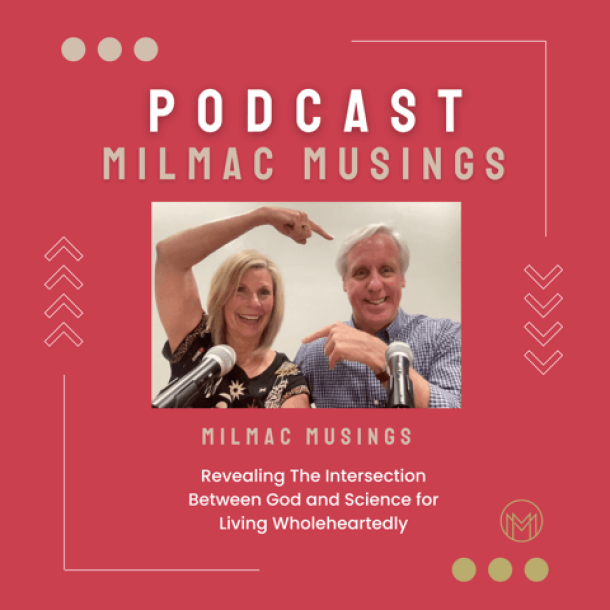Clarity Matters: Defining Abuse, Anxiety, And Other Complex Trauma Related Terms

Explore the complexities of the relational experience as we define the dark elements of abuse, anxiety, codependency, complex trauma, depression, and shame. Each element paints a unique stroke on the canvas of our broken lives. From the deliberate misuse of gifts to the haunting whispers of shame, we want to make the confusing, known, through definitions.
ACEs: Adverse Childhood Experiences are verbal, emotional, physical, sexual, and violent acts rooted in a combination of behavioral patterns passed from one generation to the next and intelligent evil occurring in childhood from in utero to 17 years.
Abuse: The deliberate misuse of gifts or privileges and the insulting of individuals. This misuse can happen through emotional, verbal, physical, sexual, or spiritual ways. Scripture stresses that neither God's gifts nor his people are to be abused.
Adversity: a state of hardship, difficulty or misfortune that one deals with in life.
Anxiety: Uneasy feelings of uncertainty, agitation, dread, or fear that’s root can be from trauma when a child. It’s a need to be in control of life circumstances rather than having learned to fully trust God.
Armor: a protective mind and body gear for wearing in battle
Attachment: a theory of relationships and emotion, where safety is a key component in understanding problems.
Attentive Listener: one who probes for accurate and adequate knowledge of what the other person is trying to communicate.
Awe: the condition of a man’s spirit realizing Who God is and what He has done for Him personally.
Bitterness: clamming up when you are offended but still stewing over the offense in your mind.
Blessing: refers to flourishing and the multiplication of life.
Body Language: an outward reflection of a person's emotional condition.
Boundaries: Boundaries are like a protective barrier, similar to how our skin protects our bodies. God created boundaries in creation, as we can see, with the oceans in place, etc. When boundaries are crossed, we feel unsafe. They define our identity by separating us from others and giving us a sense of ownership.
Codependency: When we build our lives around taking care of, worrying about, or supporting another person who is often caught in chaos or difficulty and may have an illness or addiction.
Communication: A Key to Successful Relationships. Communication is transmitting information from one person to another either and can be done verbally or nonverbally.
Complex Trauma: Differs from P.T.S.D. or one-time trauma events such as a car accident in that it usually begins when the person is in early childhood and is inflicted through a caregiver over and over. People can experience complex trauma on a physical, sexual, mental, behavioral, emotional, or communal level.
Conflict: Conflict is a disagreement or clash of interests.
Control: Putting oneself in the role of God. The need to have and keep control and power in an interpersonal relationship.
Depression: A persistent sense of sadness or loss of motivation in life that decreases a person's energy to function in different parts of their lives (like work, family, friendships). Depression occurs when feelings associated with sadness and hopelessness continue for long periods of time.
Dignity: the quality of being worthy of esteem or respect.
Dominion Mandate: the man and the woman who’ve been made in God’s image—who’ve been called into being by the triune God, who’ve been fashioned not by chance, but by divine election—are now given a task. They are given a role and a responsibility. They’re to subdue the earth and have dominion. They’re to extend God’s reign over the entirety of the cosmos.
Edification: speech that builds up and shows a desire to help another understand themselves and their lives from God’s perspective.
Emotional Abuse: the systematic tearing down of another human being by rejecting, ignoring, terrorizing, isolating, or corrupting them.
Expressed Behavior: the degree of behavior shown to other people–how you act toward others.
Eye Signals: Eyes may well give the most revealing and accurate of all human communication signals because they are a focal point on the body and the pupils work independently.
Gracious Speech: speech that is characterized by kindness and compassion (desiring to help someone with legitimate needs) and forgiveness (offering a gracious pardon so as to promote reconciliation).
Flashback: Flashbacks can be triggered by fairly ordinary experiences connected with the senses, like the smell of someone’s odor or a particular tone of voice. It’s a normal response to this kind of trauma.
Free Will: We are created with minds that have the ability to think, reason, and make our own choices.
Friend: Jesus is now our friend and tells us everything the Father told Him. According to Jesus, friendship is telling others what is deepest in one’s heart.
Generational Mirroring: the unconscious imitation of another person's behavior, gestures, expressions, or speech patterns.
Gesture: a significant act, bodily movements or signals carrying meaning, evoke responses or convey positive or negative feelings, which may or may not include words or other communications.
Effective Communication: The effective conveyance of a message. God has communicated with humanity, especially through his Son. Christians are encouraged to communicate God’s word effectively to others.
Fool: one who finds no pleasure in understanding, but delights in airing his own opinions.
Imagers: Humankind was created as God’s image. If we think of imaging as a verb or function, that translation makes sense. We are created to image God, to be his imagers. It is what we are by definition. The image is not an ability we have, but a status. We are God’s representatives on earth. To be human is to image God.
Intelligent Evil: demonic spirits having information about things, places, and people, names of people and the ability to indwell a human engaging that person's vocal apparatus to terrorize others, blaspheme, challenge, make requests, scream, shriek, and cry out.
Khen: a gift given with delight or favor.
Lies: as simple as refusal to tell the truth (commission) or leave out details that influence deceit (omission).
Limits: Limits are used to protect your ability to deal with a person out of love. To say to the person you're dealing with, out of love, "I can't do that at this time."
Love: God is patient and Kind, God does not envy or boast, He is not arrogant or rude. He does not insist on His own way. He is not irritable or resentful. He does not rejoice at wrongdoing, but rejoices with the truth.
Loyal Love: The loyal love of God to His promises with unconditional love.
Masterpiece: God is an artist. He is preparing the greatest art show ever staged, and we are the materials of his art, the grandest expression of his creativity. The art show he is preparing transcends canvas, clay, chords, or cinema. He has expressed his creativity in you and me and is making a living display out of the whole human race.
Nephilim: The Nephilim are offspring of the sons of god and daughters of Adam. The Nephilim are known as great warriors and Biblical giants.
New Creation: When a person is born again through Christ, we are a new creation where the Spirit of Holiness lives to empower us.
New Name: Those who follow Jesus will triumph and be given a new name.
Non-verbal Behaviors: facial responses, head movements, eye contact, clothing and personal attire, and body language (posture and movement).
Physical Abuse: using physical power to control, manipulate, or intimidate another person.
Providence of God: God is the creator of heaven and earth, and that all that occurs in the universe takes place under Divine Providence — that is, under God's sovereign guidance and control. According to believers, God governs creation as a loving father, working all things for good.
P.T.S.D.: an anxiety disorder that can result from a traumatic event. You may have heard the term used in relation to the military, but it can apply to survivors of any type of trauma, including sexual violence. Survivors might experience uncharacteristic feelings of stress, fear, anxiety, and nervousness—and this is perfectly normal. With PTSD these feelings are extreme, can cause you to feel constantly in danger, and make it difficult to function in everyday life.
Pursed Lips: indicates a person who may be intent on evil
Rape: non-consensual sexual penetration obtained by physical force, by threat of bodily harm, or at a time when the victim is incapable of giving consent due to mental illness, mental retardation, or intoxication of some kind.
Respect: to have differential regard for, to treat with propriety and consideration one to another.
Responsibility: God’s will for us, humans, is that we live responsibly so that we may always live honestly and in harmony with God and one another.
Responsive (Wanted) Behavior: the degree a behavior is actually wanted or welcomed from others.
Rest: The practice of ceasing work or activity to relax and restore one’s energy. It was created by God for man.
Rotten Speech: a weapon to “cut down” the other person so that you might exalt your own honor and desires.
Safe Person: One you can go to to share your challenges whom you trust to listen to you without judgment who shows compassion and guides you in a healthy way.
Secret: Purposely withheld information either by commission or omission.
Sexual Abuse: any sexual activity – visual, verbal, or physical – engaged in without consent.
Sexual Harassment: any action occurring within the workplace whereby one person is treated as the object of another’s sexual prerogative.
Shame: We feel a sense of shame when we have done something dishonorable or when something dishonorable has been done to us. We can feel “trashed,” and want to hide. Shame is a feeling that undermines one's sense of self-worth. It whispers, "I am bad," rather than "I did something bad."
Sons of God: group of rebellious members of the divine council in the heavenly realm who chose their way over God’s and ignored the boundaries set in place by God.
Spiritual Abuse: the use of spiritual power, position, or information to control, intimidate or manipulate another person.
Survival Response: various emotional responses as a survivor of a traumatic event. These can include guilt and shame, unworthiness, I should not have survived, loss of connection to old life, disorientation, anger and blame, or positive reactions giving your life new meaning.
Survivor: someone who has continued to function and learned how to prosper in spite of abuse.
Temperaments: Our natural disposition, personality traits, and emotional inclinations. God has plans for you that are specifically suited to your individual character and way of being.
Tone of Voice: reveals love, anger, or understanding (Be gentle - fruit of the Spirit)
Trust: to believe in the reliability, truth, or strength of something or someone.
Truth In Love: honesty and openness with the seasoning of love that always respects the other person.
Touch: A permissible pat on the back, kiss, or hug with intent to show affection. A non-permissible touch with intent to harm.
Uniqueness: Humans are not just glorified animals. We are reflections of God, sacred mirrors. All of us.
Unseen Realm: The spiritual realm that mankind cannot see with his eyes.
Verbal Abuse: using verbal power to control, manipulate, or intimidate another person.
Victim: someone who has suffered from an injurious action.
Wink of The Eye: The wink of the eye happens when someone is planning perversity.
Workmanship: In the light of Bethlehem’s candle we see man not as he often is, but as he may be, as we trust he yet will be. God became man that man might become as God; that he might be a little higher than the angels, instead of a little lower than the brutes. Thus, in the light of this truth, we escape from the snare of the devil, which would lead us to despise human nature.






